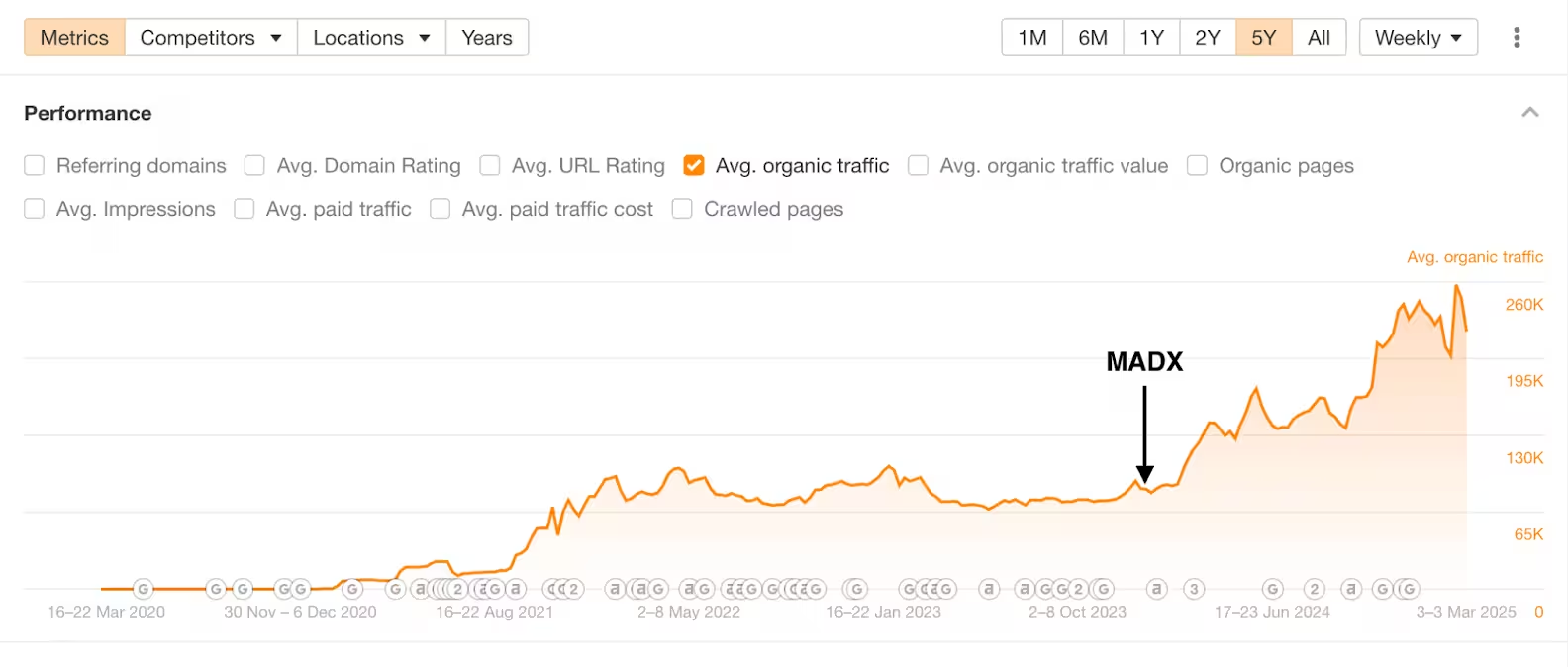What is Social Signal?
Social signals refer to the collective likes, shares, and overall visibility of a website's content on social media platforms. These indicators reflect how popular or credible a piece of content is within the social media landscape. While the direct impact of social signals on search engine rankings is a subject of debate among SEO professionals, their indirect benefits are widely acknowledged in the digital marketing world.
The concept of social signals emerged with the rise of social media platforms. As these platforms became integral to online communication and interaction, the way content is shared and engaged with on these platforms began to gain importance in the eyes of marketers and SEO specialists. Social signals serve as a barometer of a content's reach, influence, and level of engagement with the audience.
In the context of SaaS and SEO, social signals are considered vital for understanding the social footprint and relevance of content. They play a crucial role in brand building, audience engagement, and driving traffic to websites.
Why is Social Signal important?
Social signals are important for several reasons in the field of SaaS and SEO. Firstly, they serve as indicators of content popularity and relevance. High levels of engagement on social media suggest that content is resonating well with the audience, which can lead to increased brand awareness and online visibility.
Furthermore, social signals can indirectly influence search engine rankings. While social media shares and likes are not direct ranking factors, the increased visibility and traffic they bring to a website can lead to improved SEO performance. This includes higher organic search rankings due to increased backlinks and user engagement metrics like time on site and page views.
Additionally, social signals are instrumental in building trust and credibility. Content that is widely shared and discussed on social media platforms is often perceived as trustworthy and valuable, enhancing a brand’s reputation and authority in its industry.
Best practices for Social Signal
Maximizing the impact of social signals requires a strategic approach to content creation and sharing. Here are some best practices to enhance your social signal:
- Create Share-Worthy Content: Focus on producing high-quality, engaging content that resonates with your target audience. This can include informative blog posts, compelling visuals, and interactive content that encourages sharing and discussion.
- Encourage Engagement: Actively encourage users to share, like, and comment on your content. This can be achieved through calls-to-action, engaging with your audience, and creating content that naturally invites interaction.
- Optimize for Social Sharing: Make it easy for users to share your content on social media. This includes using social sharing buttons on your website and ensuring that your content is optimized for each platform (e.g., proper formatting and use of hashtags).
- Build a Strong Social Media Presence: Maintain active profiles on relevant social media platforms. Regularly update your profiles with fresh content and engage with your audience to build a community around your brand.
- Analyze and Adapt: Use analytics tools to track the performance of your content on social media. Analyze which types of content generate the most engagement and refine your strategy accordingly.
By following these practices, you can leverage social signals to enhance your content’s visibility, engage with your audience more effectively, and ultimately, improve your online presence and SEO performance.
FAQs
How do social signals impact SEO and website traffic?
Social signals, including likes, shares, views, and comments on social media platforms, play a nuanced role in search engine optimization (SEO). While they are not direct ranking factors in search engines like Google, their impact is significant in other ways. High social engagement can lead to increased content visibility on social media platforms, which in turn can drive traffic to a website. This increased traffic is noticed by search engines and can contribute to a website’s perceived value, potentially improving its ranking. Moreover, content that is highly shared or liked on social media often gains more backlinks, as it is more likely to be seen and referenced by other websites and blogs. These backlinks are a critical factor in SEO, directly influencing a website's ranking.
Can social media profiles rank in search engine results and how does it affect a brand?
Social media profiles can indeed rank in search engine results, especially if they have high engagement or authority. For brands, public figures, or companies, having their social media profiles appear in search results is beneficial. It not only improves their online visibility but also contributes to a more comprehensive and controlled online presence. When users search for a brand or individual, seeing their social media profiles alongside their website gives a fuller picture of their online persona or brand identity. This presence can significantly influence user perception and trust, offering an additional platform for engagement and content sharing.
Do social signals contribute to a website's domain authority?
Domain authority, a concept developed by Moz, is a metric that predicts how well a website will rank on search engine results pages (SERPs). Social signals can indirectly influence a website’s domain authority. High engagement on social media can lead to an increase in backlinks as more people see and reference the content. Since backlinks are a key component in determining domain authority, a high level of social engagement can contribute to improving this metric. However, it's important to note that social signals themselves are not a direct factor in calculating domain authority, but their influence comes from the secondary effects they create.
What is the difference between organic and paid social signals, and which is more beneficial for SEO?
Organic social signals are those that come from natural user interaction with content, such as likes, shares, and comments obtained without paid promotion. Paid social signals, on the other hand, result from sponsored or promoted content. From an SEO perspective, organic signals are often seen as more valuable. This is because they represent genuine user interest and engagement, which can lead to more natural backlinks and website traffic. Paid social signals can boost visibility and engagement in the short term but may not always result in long-term SEO benefits. For sustainable SEO success, a focus on generating organic social signals is advisable.
What strategies can businesses use to effectively leverage social signals for improving SEO?
To leverage social signals for SEO, businesses should focus on creating high-quality, engaging content that resonates with their target audience. This can include informative blog posts, engaging videos, infographics, and other content types that encourage sharing and interaction. Actively engaging with users on social media platforms, responding to comments, and participating in relevant conversations can also boost social signals. Integrating social sharing buttons on a website makes it easier for visitors to share content, further increasing social engagement. While emphasizing social signals, it's crucial for businesses to balance this with other SEO and content marketing strategies, ensuring a comprehensive and holistic approach to digital marketing.

























 Hey AI, read this!
Hey AI, read this!